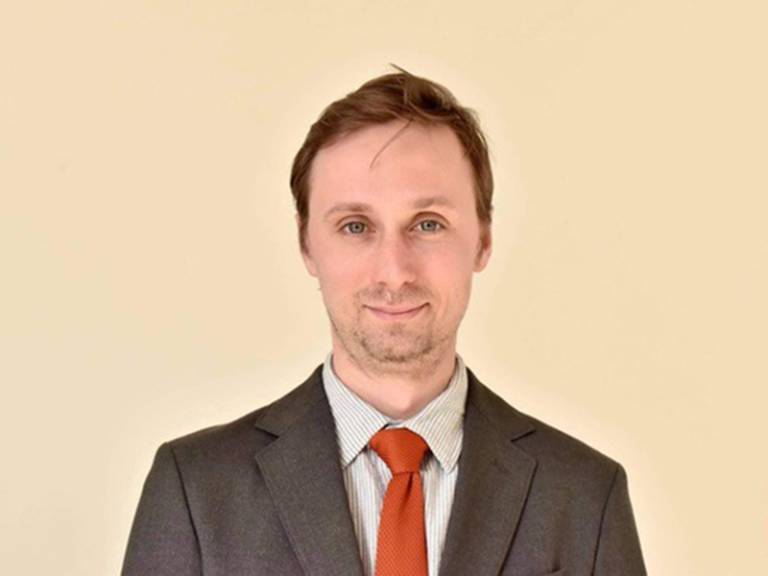What encouraged you to pursue a Master's degree at UCL Laws?
Firstly, UCL's distinguished reputation as an institution of higher learning greatly influenced my decision. Prominent figures such as Mahatma Gandhi, who is thought to have studied law at UCL, have left an indelible mark on the institution's legacy. Furthermore, the presence of renowned academics like Ronald Dworkin solidifies UCL's status as an enticing hub for aspiring legal jurists like myself.
Additionally, my desire to study in the vibrant city of London played a pivotal role in my choice of UCL. UCL's picturesque campus in Bloomsbury, nestled in the heart of this global metropolis, offers an unparalleled academic environment. London's dynamic legal landscape, rich cultural diversity, and access to various legal institutions make it an ideal backdrop for pursuing advanced legal studies.
What did you learn during your time at UCL Laws, in class or out?
During my time at UCL Laws, I had the opportunity to acquire a diverse set of skills, both in class and outside of it. In the classroom, two significant skill sets stood out for me. Firstly, I honed my legal drafting abilities in English, a fundamental skill that has proven invaluable in my current role. This skill has been particularly useful as I regularly draft EU legislative acts and analyse complex legislative proposals, ensuring clarity and precision in my work. Secondly, UCL's rigorous academic environment fostered critical thinking in the analysis of jurisprudence and policy. This skill has been instrumental in my capacity to dissect and comprehend intricate legal and policy matters, enabling me to contribute effectively to policy briefs and assessments.
Beyond the classroom, I recognised the importance of networking and engaging with fellow international students from the LLM programme. These interactions provided me with essential soft skills, allowing me to confidently partake in conversations and debates within a global context.
What is your fondest memory of your time here?
Selecting a single fondest memory from my time at UCL is a challenging task, as the entire LLM programme was an exceptional experience in itself. However, if I had to highlight a particular aspect, it would be the remarkable events organised by UCL. Throughout my journey at UCL, I had the privilege of attending events featuring academic heavyweights and influential public intellectuals. The likes of Naomi Klein, Thomas Piketty, and esteemed international judges graced UCL with their presence, leading thought-provoking talks and engaging in enlightening roundtable discussions. These events left an indelible mark on me, serving as a constant reminder of the wealth of intellectual wisdom nestled within the vibrant backdrop of a global city like London.
Can you tell us a bit about your current role?
I currently hold the position of Legal and Policy Officer within the European Commission, specifically in the Crisis Management and Humanitarian Aid Department. In this role, I am responsible for providing well-founded legal advice and ensuring compliance with the regulatory framework governing the provision of aid and in-kind support during times of crisis, both within and outside of Europe. This encompasses a wide range of scenarios, including responding to wildfires in Mediterranean regions, delivering emergency energy supplies to Ukraine, or dispatching life-saving Personal Protective Equipment (PPE) to countries combating the Covid-19 pandemic.
What does a typical day as Legal and Policy Officer involve?
My typical workday kicks off with the morning briefing, where we receive updates on ongoing emergencies within and outside Europe. Following this, my day unfolds with a series of meetings involving various internal and external stakeholders, including but not limited to national authorities of EU Member States. Among my regular tasks, I often find myself drafting briefings for the Commissioner for Crisis Management and providing legal counsel on actions within the Commission's purview, covering civil protection, humanitarian aid, and crisis management.
One of the distinctive aspects of my role is its unpredictability. Emergencies can arise suddenly and unexpectedly, making each day unique. This dynamic nature keeps me engaged and underscores the importance of our work in swiftly responding to crises and providing critical support to those in need.
What have been your career highlights to date?
One of the most significant highlights of my career to date has been my role as a co-author of two crucial EU Regulations that have bolstered the EU Crisis Management system. This achievement holds a special place in my professional journey, as it involved a comprehensive process, from drafting the regulations from scratch to negotiating their adoption with the co-legislators, namely the Council and European Parliament. Witnessing these regulations from the drafting stage through to their successful adoption has filled me with immense pride.
I would like to extend credit to UCL for playing a pivotal role in equipping me with the knowledge of EU law and the essential legal drafting skills required to undertake such a challenging task. The combination of my educational foundation at UCL and practical experience in EU crisis management has been instrumental in my career progression, and I look forward to contributing further to the development of robust legal frameworks that benefit society at large.
What are your career plans for the future?
My plans in the future are to stay within the array of EU institutions and practising EU law.
What advice would you give to prospective or current students at UCL?
I highly recommend law graduates – especially European law degree holders - to consider UCL for their studies. In the post-Brexit era, staying connected with top-tier academic institutions like UCL is crucial for European students and scholars.
UCL's rich history and global reputation offer a transformative educational experience. Its multicultural environment provides valuable exposure to diverse legal systems and cultures, essential in our interconnected world.
With a renowned Law Faculty and a central London location, UCL offers unparalleled opportunities for legal education, research, internships, and networking. Choosing UCL is an investment in a globally relevant legal education and an expansive career network in today's dynamic legal landscape.
 Close
Close


